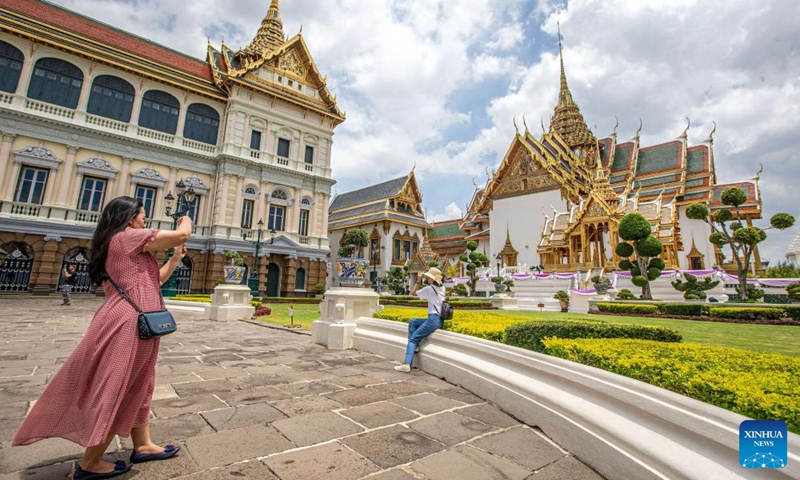China-Thailand mutual visa exemption deal inked, to propel personnel exchange and tourism growth

China and Thailand signed a mutual visa exemption agreement in Bangkok, Thailand on Sunday, which will take effect on March 1 and is expected to propel faster recovery of Thai tourism to pre-pandemic levels.
After the announcement of reciprocal visa exemption agreement, on Trip.com platform, the volume for Thai-related searches jumped 7-fold from the previous day, including search for air flights and Thai hotels.
The most searched Thai destinations by Chinese tourists include Bangkok, Phuket and Chiang Mai.
The Tourism Authority of Thailand predicts that, in 2024, the number of Chinese visitors will rank above those from other countries. Visitors from China are expected to reach 8 million, according to media reports, reaching 73 percent of the levels seen in 2019.
Thailand has unilaterally granted a 5-month visa-free stay to Chinese visitors from September 25, 2023 until February 29, 2024. The news on Sunday indicates that the unilateral visa-free arrangement will seamlessly transition into reciprocal visa waiver.
The visa waiver agreement has been anticipated for some period, and it has undergone a transition from temporary to permanent arrangement now, Yang Jinsong, an expert with the China Tourism Academy, told the Global Times on Sunday.
Yang noted that "the latest visa waiver deal holds great significance for Chinese tourists traveling to Thailand, considering China was Thailand's largest source of tourists before the pandemic." It will accelerate the recovery of Thai tourism industry, the expert said.
In 2023, the number of Chinese tourists visiting Thailand was around 3.5 million, representing a recovery to 31 percent of the levels seen in 2019, according to media reports.
On online travel platforms, Thailand is the most popular destination for Chinese tourists traveling overseas during the upcoming Spring Festival holidays, according to a recent report Qunar sent to the Global Times.
Tongcheng Travel said that the popular destinations for outbound travel during the coming holidays included Bangkok, Chiang Mai and Phuket.
"Visa exemptions indeed contribute to making a destination more appealing to tourists from both sides," Yang said, predicting an even faster recovery for Thai tourism.
However, achieving a complete return to pre-pandemic levels in 2024 may not be entirely feasible, and could take more time, Yang said.
Thailand announced last September its decision to allow visa-free entry for Chinese tourists from September 25 until the end of February 2024 this year, in alignment with the country's prime minister's commitment to enhancing Thailand's economy through tourism.
Since the second half of 2023, there has been growing momentum in visa-free arrangements between China and Southeast Asian countries.
China and Singapore on Thursday agreed on mutual visa exemption, effective on February 9, 2024. Chinese and Singaporean citizens holding ordinary passports will be allowed to enter and stay in each other's countries visa-free for up to 30 day.
With the visa exemption policies, personnel exchanges between China and Southeast Asian countries may surge. It is anticipated that more Chinese sightseers will visit Southeast Asia, whose tourism sector will again enter a "golden age," analysts said.